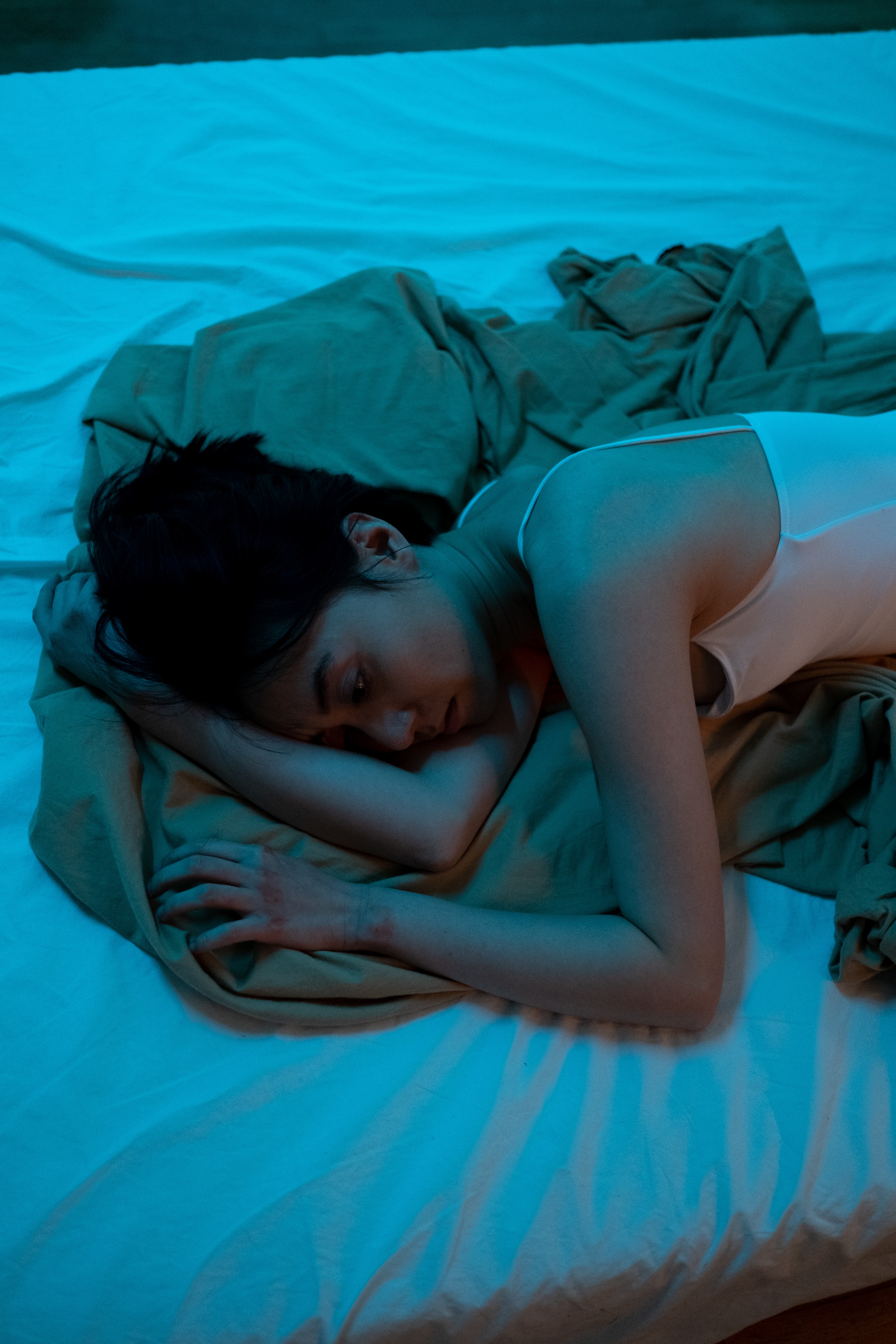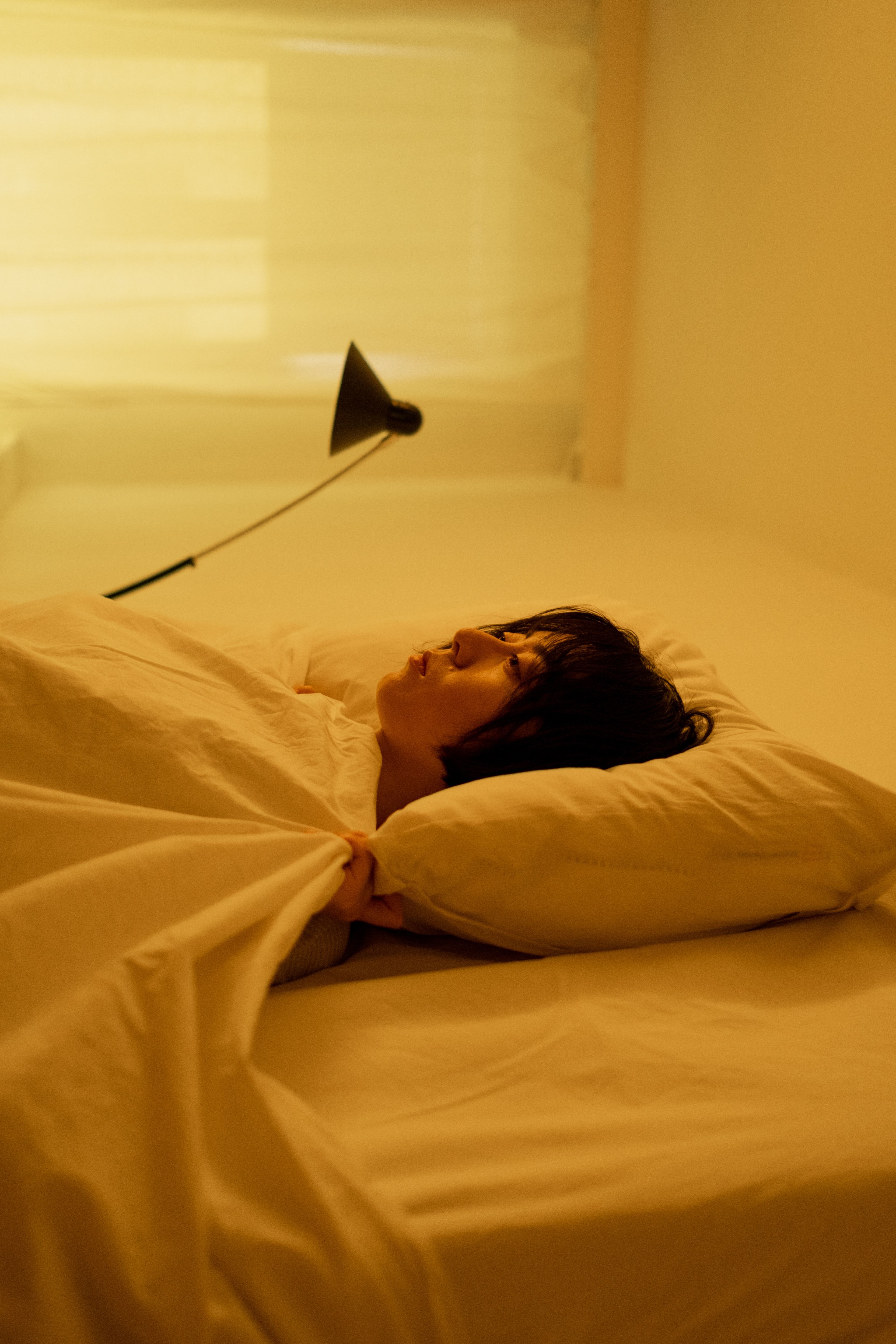
Amanda screamed in pain, trembling… unable to move. The pain in her right leg was indescribable, more than she could bear. It seemed to spread to all of herself. Jillian had cantered by on her horse, but realized Amanda was no longer beside her, and turned around to find her. Then, she saw her on the ground, her right leg sprawled unnaturally over a rock. The horse she’d been riding was galloping in the distance toward the barn. As she got closer, she realized she could see bone and blood poking through Amanda’s jeans. Jillian pulled her cell phone from her pocket and called for help, then tethered her horse to a tree branch and rushed to Amanda. Removing her jacket, she folded it and tucked it underneath Amanda’s head. Amanda continued to cry out. What could be done to scrub this trauma, depression, and anxiety and give comfort to Amanda??

Trying to soothe her, Jillian held her hand, stroked her arm, and encouraged her to lie as still as she could. Within 15 minutes, they heard a siren, followed by an ambulance that worked its way along the bridal path then came to a stop. Paramedics rushed to Amanda to stabilize her leg, and started IV fluids. Then the sound of rotors as a Life Flight helicopter descended and landed nearby.
Before long, Amanda was secured in the helicopter and transported to the nearest trauma center. Once inside, she was whisked to surgery and put to sleep.
The next thing she knew, she was groggily waking up and she saw there was a cast on her leg that started at her waist. A nurse told her that her femur had been broken in two places, but it had been set surgically, and after some months of recovery to allow the bone to mend, she would be as good as new.
Whoa. What a lot to take in.
A day that began with a leisurely ride on her horse, with her friend, had deteriorated into a shocking crisis, and a major disruption of her life. After a few days in the hospital, she was transported to her parents’ home where a hospital bed waited for her.
This was going to involve months of laying on her back, using bedpans, and no freedom. How was she going to live like this? What a nightmare! She was stunned at it all, and wished something could scrub away the trauma, depression, and anxiety that suffocated her. She picked up her cell phone and called her boss, explaining what had happened and that she would need a leave of absence… if that was possible.
The doctor said she could be laid up for 5 or 6 months….
The first couple of weeks there was the novelty of it all. Being fed on her back, waited on hand and foot by her mom, friends stopping by for visits. But then the novelty wore off, and it was the day in day out of sameness. Boredom. Worries.

Amanda found herself dreaming of hopping in her car and taking off to meet friends for shopping, dining, or drinks, or a Saturday morning horse ride. She missed getting up, showering, dressing, and driving in rush hour to work. The energy in all that, the sense of anticipation and accomplishment. She missed it. Badly.
By the beginning of the third month, the walls felt like they were closing in on her. She felt so alone and isolated — even though her mom was there during the day, and both parents were there at night. She should feel lucky, right? Her thoughts drifted to a darker place, and even the lightbulbs seemed dimmer.. gloomier. It was as though her perception of her surroundings was filtered through her dark thoughts. (She was ashamed of the isolation she felt, because she knew what a sacrifice this was for her mom who tirelessly cared for even her most basic human needs.) But she couldn’t seem to help it.
But her mom’s presence just wasn’t somehow enough.
She just lay there.
Dull. Without stimulation or hope. A listlessness invaded her mind and body. Hopelessness.
Helplessness.
She craved sunshine, fresh air, activity, busy-ness. Excitement.
Oh how she wished for something to scrub away this trauma, depression, and anxiety. It was awful.

But in that room it was as though the sky was overcast, dark, the air heavy with dread.
And the room had shrunk to a postage stamp in the last two months. Sometimes, she felt a rising dread, nervousness she couldn’t explain, sometimes she even felt panicky.
Tears ran from her eyes onto the pillow.
In the fourth month, she was transported to the hospital to modify her cast and check progress. Her orthopedic surgeon said the bone was mending nicely. Her cast was reapplied so that it only came up to her hip and she could now sit.
Though there was some relief in that, she didn’t care. She was resigned to her isolation and helplessness.
Her surgeon could see she was emotionally flat. It oozed out of every pore.
“How are you coping with all this, Amanda?”
“Fine.”
He could see this wasn’t true.
“You know, being in a body cast is pretty hard on some people. Few of us are prepared for the sudden cessation of the life we’ve come to know. The lack of activity, social life, independence. It gets to people. It’s nothing to be ashamed of. You’re an independent and capable young woman who has lost your independence. And even though it’s temporary, it can still take a toll.
“I’m going to set up a referral to another doctor who may be able to help you get through this less painfully.”

Once Amanda was home and settled into a wheelchair, the phone rang.
It was the psychiatrist her orthopedist had recommended. They agreed upon a tele psychiatry appointment for the following morning.
“Hi Amanda. I understand you’ve suffered an accident and a severely broken leg. Tell me what this has been like for you..?”
“It’s been hard. The pain was terrible at first, but I had pain meds. It doesn’t hurt much anymore, but the huge cast has kept me nailed to the bed. I just couldn’t have dreamed how hard that would be.”
After they talked about Amanda’s experiences the last four months, the doctor told her she was showing symptoms of depression, as well as anxiety.
“You need something that can scrub away the trauma, depression, and anxiety you’re experiencing. At our practice, we offer different treatment options to help your emotions heal — and one of them is treatment specifically that targets the metabolism deep within all your cells. Are you familiar with the keto diet, and what it can do?”
Amanda hesitated. “Keto diet? I know some people use it to lose weight…”

“Yes, that’s true. But in psychiatry, we’re learning more all the time about how a diet that produces ketones can help resolve epilepsy, diabetes, Alzheimer’s, psychiatric illness, and more. Since many people suffer from more than one ailment, a ketogenic metabolic therapy — a treatment that gets your body to produce ketones — can address multiple issues at the same time.
“For example, people with diabetes are more prone to depression, and people with depression often also have anxiety… and the list goes on. In your case, the trauma of your injury, and the subsequent treatment you’ve needed for it, have given way to depression and anxiety in you.
“By feeding the mitochondria — or power-producing mechanism in your cells — with ketones instead of glucose, your cells can able function more efficiently. The over-excitability in the cells that leads to anxiety can calm… and the cells that are functioning poorly can come up to speed, relieving depression symptoms, brain fog, hopelessness, and the other churning thoughts in your head.
“We’re experts at getting this to happen for you—safely.”

A flicker of hope flashed in Amanda for a split second.
“Amanda, I’m going to set up a full evaluation for our Metabolic Psychiatry program where we will help you upgrade your food choices so that you feel much better. Also, now that you’re in a wheelchair, you can roll yourself outside and soak up some sunshine. I want you to start doing that, in the mornings, if possible. Try to give it 30 minutes or so a day.
“Also, there is an online broadcast that can help you understand this treatment better. It’s called Metabolic Mind. I think you’d like it and learn a ton.
“Yes, I think so. I don’t feel like making effort of any kind these days, but I do want to feel better, and I don’t want more pills.”
The evaluation was incredible—so detailed, so comprehensive, joint feedback and she got more and more excited by the process, all the tools, the digital apps, the group support. It was so personalized, and the support step by step, the monitoring of her symptoms and labs…

A couple hours later her mom returned with groceries, and enlisted Amanda’s help in preparing a simple but nutritious ketogenic lunch of salad with sliced avocado, grilled chicken, and almonds, with a drizzle of olive oil and balsamic vinegar.
That evening, with salmon cooked in olive oil and feta-covered buttered broccoli for dinner, Amanda found she was really liking this new approach to food.
Within a week she could tell a slight difference in her outlook. Was it being able to sit up? Or maybe the daily patio sessions in the sun? Was it the food?
She wasn’t sure, but something was changing.
Two weeks later, her mind was clearing. That dark dread was getting lighter, the fogginess and difficulty thinking was gone. Gone.
The following month, she invited a couple friends for lunch, and they all hung out in the kitchen putting lunch together, chattering and laughing, catching up on the latest gossip.

Tears stung her mom’s eyes as she watched.
Another month later, and Amanda’s cast was removed. She went to physical therapy to work on getting her mobility back, and walked with a cane for awhile. Eventually, she was driving again, and finally started back to work. She was enjoying relief from the whole nightmare… it seemed as if her metabolic treatment had scrubbed the trauma, depression, and anxiety that had plagued her for months.
By the time she was back on the job, her leg was working better and better, but more important, her outlook on life was bright and hopeful.
Amanda realized that the worst impairment had not been her broken leg, but her shattered outlook, and she was beyond grateful to see clearly again.
Moving forward, Amanda didn’t want to risk the return of that anxiety or the depression, so it was a no-brainer to continue the metabolic regimen she had begun that had brought her so much relief. Besides, the weight she had gained lying in bed all those months was now coming off. What a relief. It had been a long seven months… but she was finally feeling like herself, and she was finally seeing the other side of this catastrophe.

Hope flourished.
Have you experienced a life altering trauma that you found almost impossible to cope with? Did it feel like you had lost those aspects of yourself that make you who you are?
If helplessness has turned into hopelessness and despair for you, call us.
We offer more innovations than ever to help you feel better, and pursue the kind of rewards you seek for a fulfilling and fruitful life.

To the restoration of your best self,
